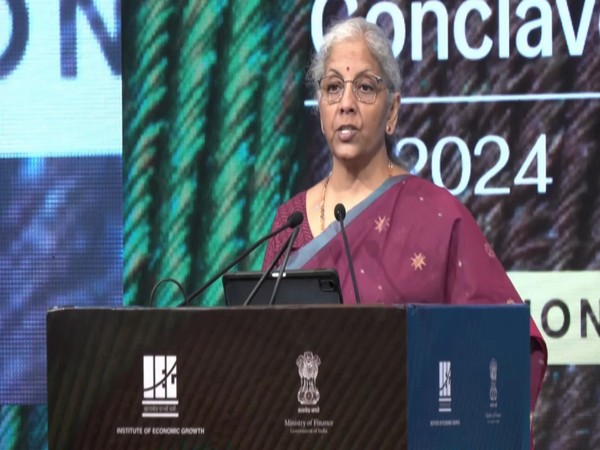
New Delhi: Union Finance Minister Nirmala Sitharaman outlined the critical pillars of India's economic growth at the Kautilya Economic Conclave, in New Delhi on Friday. In her speech, the finance ministers highlighted the reforms done in India's banking sector and its impact on India's economy.
Sitharaman said, "The soundness and resilience of India's banking sector have been underpinned by a sustained policy focus on asset quality improvements, enhanced provisioning for bad loans, sustained capital adequacy, and a rise in profitability."
She added, "NPA ratios are at a multiyear low, and banks now have efficient debt recovery mechanisms. Ensuring that the financial system stays healthy and the cycle lasts longer is another of our core policy priorities."
The Finance Minister highlighted the improved asset quality of India's banking sector, citing low non-performing asset (NPA) ratios and strong debt recovery mechanisms.
India's logistics infrastructure, particularly its ports, has seen remarkable improvements over the past decade. These advancements have propelled India to the 38th position in the World Bank's Logistics Performance Index, a sharp rise from 54 in 2014.
Emphasising the government's policy of "minimum government and maximum governance," the Finance Minister outlined key reforms across infrastructure, investment, and trade policy.
"We have pursued the deregulation and simplification of the labour codes, rolled out of the GST, the RERA Act, insolvency and bankruptcy codes, and FDI liberalisation across sectors," she said.
The Finance Minister also emphasised the importance of innovation and research in India's future growth. In the FY24 budget, Rs1200 crore was allocated to research and development, with a focus on collaboration between academia, the private sector, and government.
"We have set up the Anusandhan Research Fund to seed and promote research across academic institutions and R&D laboratories," she added.
The Finance Minister concluded by underscoring the importance of addressing the needs of India's key stakeholders--the poor, women, youth, and farmers--when shaping future budgets.
"Ultimately, the largest stakeholders and beneficiaries of the growth process towards Viksit Bharat will be the four major castes, namely 'Garib' (Poor), 'Mahilayen' (Women), 'Yuva' (Youth) and 'Annadata' (Farmer)," she concluded.